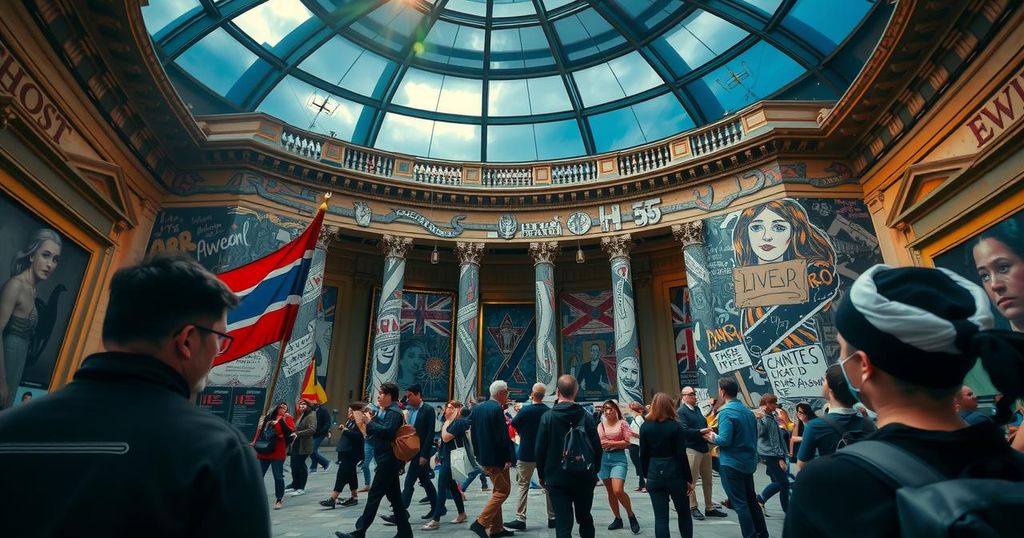The National Gallery in London has banned liquids on its premises following a series of protests where climate activists splashed soup on artworks. This decision stems from concerns over the safety of irreplaceable pieces and the distress such protests cause to visitors and staff. The National Museum Directors’ Council has condemned these acts while Just Stop Oil argues that their methods aim to highlight the urgency of climate action.
In response to a series of protests wherein climate activists targeted significant artworks with soup and other substances, the National Gallery in London has instituted a ban on liquids within the premises, alongside other security enhancements. The institution emphasized, “The collection we hold is irreplaceable and with each attack we have been forced to consider putting more barriers between the people and their artworks to preserve these fragile objects for future generations.” While free tap water is still available, visitors will no longer be allowed to bring bottled drinks into the gallery. Over the past few years, numerous protests have occurred globally, involving activists vandalizing or attempting to damage iconic artworks to highlight urgent political and environmental issues. High-profile incidents include the defacement of the Mona Lisa and a series of attacks on Van Gogh’s “Sunflowers.” Although these protests have generally not resulted in direct damage to the artworks themselves thanks to protective measures, the National Gallery reported incidents of actual harm, such as the damage caused by Just Stop Oil activists to the frame of “Sunflowers,” costing approximately £10,000. The National Museum Directors’ Council has called for an end to these disruptive protests, stating, “Whilst we respect the right for people to protest, and are often sympathetic to the cause, these attacks have to stop.” The council expressed that these actions lead to significant distress among visitors and staff and tarnish the reputation of UK museums. Meanwhile, Just Stop Oil reasserted their mission in an open letter, arguing that their actions, though disruptive, aim to highlight the severe dangers posed by government inaction on climate change.
The National Gallery’s recent measures are a direct response to a growing trend of climate activism that involves targeting and potentially damaging artwork to raise awareness for various socio-political causes. Climate protests, notably those executed by Just Stop Oil and other activist groups, have evolved to include art vandalism as a form of attention-seeking behavior to emphasize the urgency of climate action. The actions have sparked significant controversy, with many advocating for the preservation of cultural heritage while others sympathize with the protestors’ underlying messages.
The National Gallery’s ban on liquids represents a significant shift in security protocols arising from heightened concerns over the safety of artworks amidst aggressive protest tactics. As these incidents continue to escalate, the delicate balance between the right to protest and the preservation of cultural heritage becomes increasingly precarious. Calls for a cessation of such demonstrations highlight the need for constructive dialogue between activists and institutions to address critical issues without jeopardizing shared cultural treasures.
Original Source: www.washingtonpost.com







